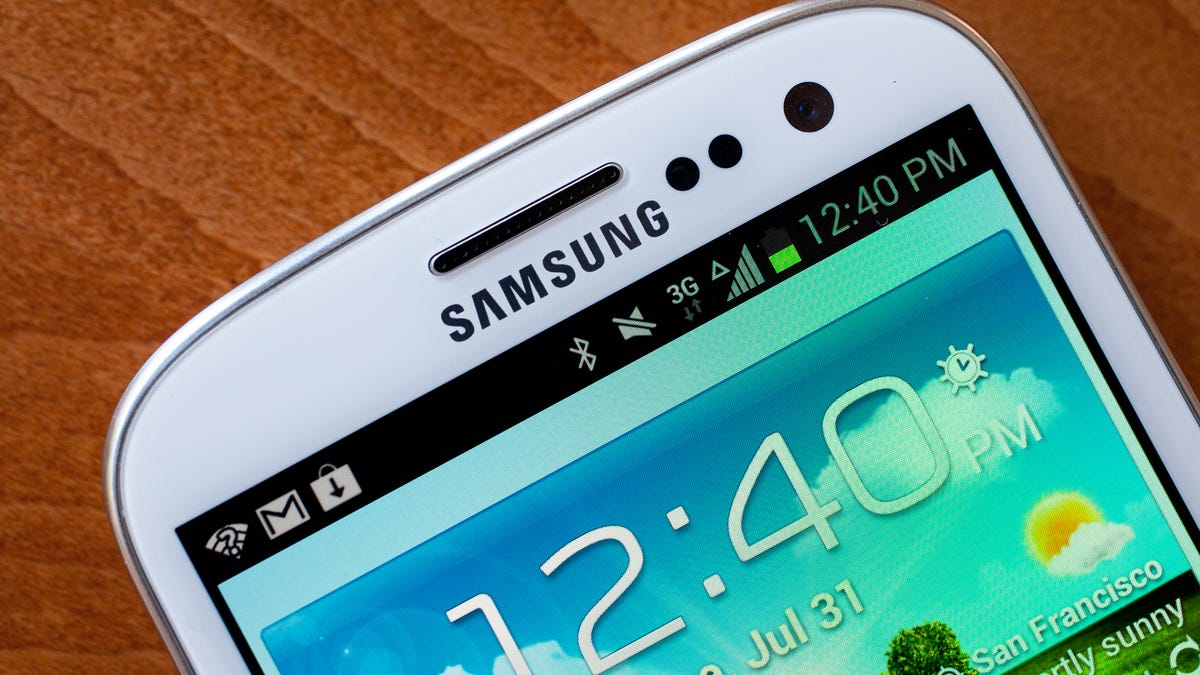Samsung: Our smartphones are 'distinctly different'
Samsung says it markets a huge number of smartphones models, and that their physical design varies significantly because U.S. carriers ask for elements of "uniqueness."

SAN JOSE, Calif. -- A Samsung executive testified that the company has as many as 100 different smartphones available in the U.S. market at any given time, many of which look "distinctly different" at the request of U.S. carriers.
The testimony aimed to rebut Apple's contention in its patent case here that Samsung has "slavishly" copied Apple's own iPhones and iPads.
"The carriers want to differentiate their portfolios, as well as their services," said Samsung chief strategy officer Justin Denison. "They typically ask us for some element of uniqueness in physical design for competition, and all the Galaxy devices look distinctly different."
Denison's testimony this morning, which was a continuation of his time on the stand at the end of last week, centered on the company's business strategy. Samsung wanted to point out the breadth of its smartphone portfolio, and explain to the jury -- who is to decide the case -- how it did business around the world.
Apple originally brought Denison up to testify about Samsung internal studies that evaluated strategic avenues against the iPhone. Samsung proceeded to have Denison burnish the company's innovation cred by discussing its advertising and research and development efforts.
Denison said Samsung just wanted to compete.
"I find it very offensive," Denison said. "At Samsung, we're very very proud of the products we produce, of all the hard work that goes into bringing those products to market."
"What we would like to be able to do is simply compete in the market, continue what we've been doing for the last 15 years in the market," he added.
Apple's lawyers took Denison to task over that claim, pulling up a translated internal Samsung document discussing the user interface of the iPhone in comparison to its own phones:
All this time we've been paying all our attention to Nokia, and concentrated our efforts on things like Folder, Bar, Slide, yet when our [user experience] is compared to the unexpected competitor Apple's iPhone, the difference is truly that of Heaven and Earth.
It's a crisis of design.
Later in that same document, the company refers to the iPhone as the new standard.
When everybody (both consumers and the industry talk about [user experience], they weight it against the iPhone, the iPhone has becomes the standard. That's how things are already.
Denison referred to that example as "hyperbole," saying it was an exaggeration.
This is the fourth day of court in the case between the two tech giants. Last week both sides presented their opening statements, and Apple launched into its first set of witnesses. That included marketing chief Phil Schiller, iOS software head Scott Forstall, and one of the company's industrial designers, Christopher Stringer. Following that track, Apple switched over to Samsung employees, beginning with Denison.
The trial is expected to run another three weeks. Following Apple's run of witnesses, it's Samsung's turn.
Update at 7:30 p.m. PT: And here's a full copy of that internal e-mail thread with the meeting notes about a "crisis of design."
Samsung meeting notes re: iPhone design (Apple vs. Samsung)
